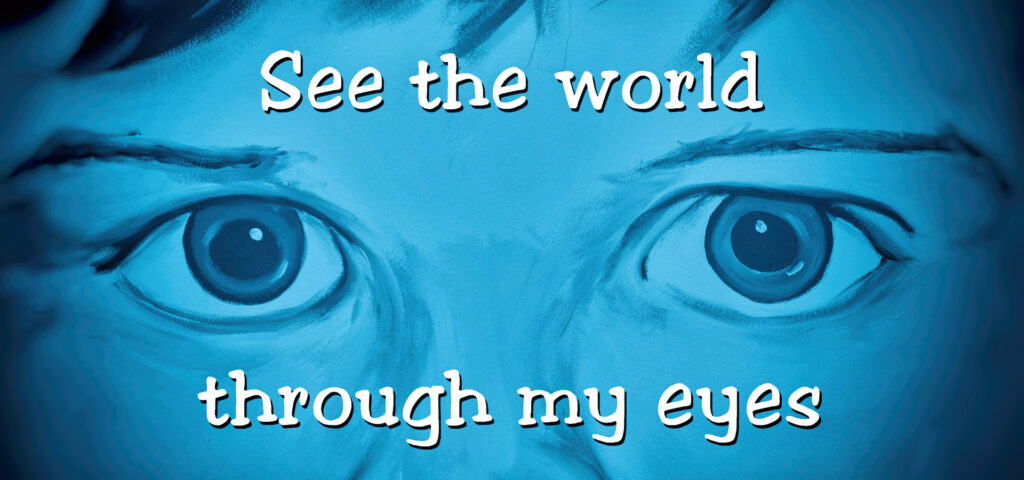Autism Mythbusters

Questions answered about Autism
We thought we would answer some questions and pull together some basic known facts (and myths) about autism, that is, misconceptions or widely held but false beliefs about autism and autistic people.
What causes Autism?
We simply do not yet know the definitive cause of autism. However, we do know that the condition has a genetic component and it is widely recognised that autism can tend to run in families. If you know someone who is autistic there is a chance that one or more of their relatives may be autistic too, but they may not know it. Autistic people are born autistic – it’s not something that they develop or catch from anyone or anything else.
Is Autism just a childhood condition?
Autism is a lifelong diagnosis. Autistic people are born autistic and remain so, living very rewarding and successful lives.
Do all Autistic people have a special talent?
The idea of an autistic individual having a special talent or being a savant was probably popularised by Dustin Hoffman’s character in the movie “Rain Man.” Often the media implies that all autistic people are highly academic and have savant abilities. This simply is not necessarily true.
Being autistic doesn’t automatically make you the next Einstein. When we ask ‘are autistic people genius?’ we should remember Einstein’s wise words “Everyone is a genius but if we judge a fish by its ability to climb a tree, it will spend its whole life thinking that it is stupid”.
Is it true that Autistic people can’t find love/work/success/happiness?
Not at all. Being autistic is not a barrier-to-entry for any of these things. Given some understanding, patience and adjustments, many autistic people can work and find lasting relationships.
Do Autistic people have a learning difficulty?
Not necessarily. It may be better to say that many autistic people have learning differences and they may learn in a slightly different way to others. With the right support and a suitable environment, many autistic people are very able, capable and independent. Around 1 in 4 autistic people speak few or no words, but they can find other ways to communicate. Some autistic people take longer to process information, but it doesn’t mean they don’t understand. Autistic people also have strengths over those without autism. For example, strong attention to detail and a special ability for seeing patterns in data can bring many advantages and bring many valuable skills to the workplace.
Is it true that Autistic people are anti-social and cannot form social relationships?
This is not true – many autistic people love being sociable and spending time together with their friends. However, autistic people can get tired out from socialising more quickly than non autistic people, as it takes more effort, but most autistic people enjoy having relationships. They may need support with social skills or interact differently with the world around them, but people show their social difficulties in different ways. Unspoken communication can be confusing for autistic people – body language, tone of voice and sarcasm can be difficult for them to read.
While autistic people often find social situations very difficult or stressful, this does not mean that a person doesn’t want to socialise. Nor does it mean that some autistic people are not very outgoing or enjoy socialising. Just because a person finds something challenging or does something in a different way, does not mean that they don’t interact with other people, have friends and form very successful and lasting relationships.
Do Autistic people have a sense of humour?
It is sometimes assumed that autistic people lack a sense of humour. This is simply not true. Autistic people are absolutely as funny as neurotypicals—but they may, at times, display humour in different ways.
Some autistic people both get and make jokes of the more “traditional” variety. But some simply don’t find popular joke types or structures amusing. Whilst they may understand and appreciate the point of a funny anecdote or something that is visually or physically funny, they may struggle with more contrived types of humour.
Autistic people are less likely to engage in laughter purely for the sake of social interaction and some people with autism may display some behaviours, such as random and nervous laughter.
Do Autistic people have empathy?
Autistic people can be highly empathic, sensitive and emotionally intelligent. This myth is likely to stem from many autistic people not showing emotion or having a delayed or inappropriate response. However, this is usually down to differences in how their brain processes information.
Can Autism be cured?
Autism cannot be cured. Some parents may allude to a certain diet, medicine, or set of behavioural treatments that have cured their autistic children, where other parents may try the same mode of treatment and see no results. While there are treatments created to improve an autistic child or person’s ability, there is no known cure for autism.
Is Autism just a boy’s condition?
Autism appears to be more prevalent in boys but girls are more likely to ‘mask’ their autistic traits, learning the skills to interact with the world more readily than boys. This can sometimes mean that many autistic girls get a diagnosis much later in life than boys.
Is Autism caused by bad parenting ?
Absolutely not. Autism is not caused by bad parenting. People are born autistic therefore their upbringing cannot cause the condition. Parenting styles can certainly help an autistic child to cope with the world, but it is definitely not the root cause of any autistic behaviour.
Isn’t everyone a little bit Autistic?
You either are autistic or you are not. What everyone may have is some autistic traits but having lots of autistic traits does not make you autistic. Autism is about how the brain is put together and how people think and process sensory and other information.
